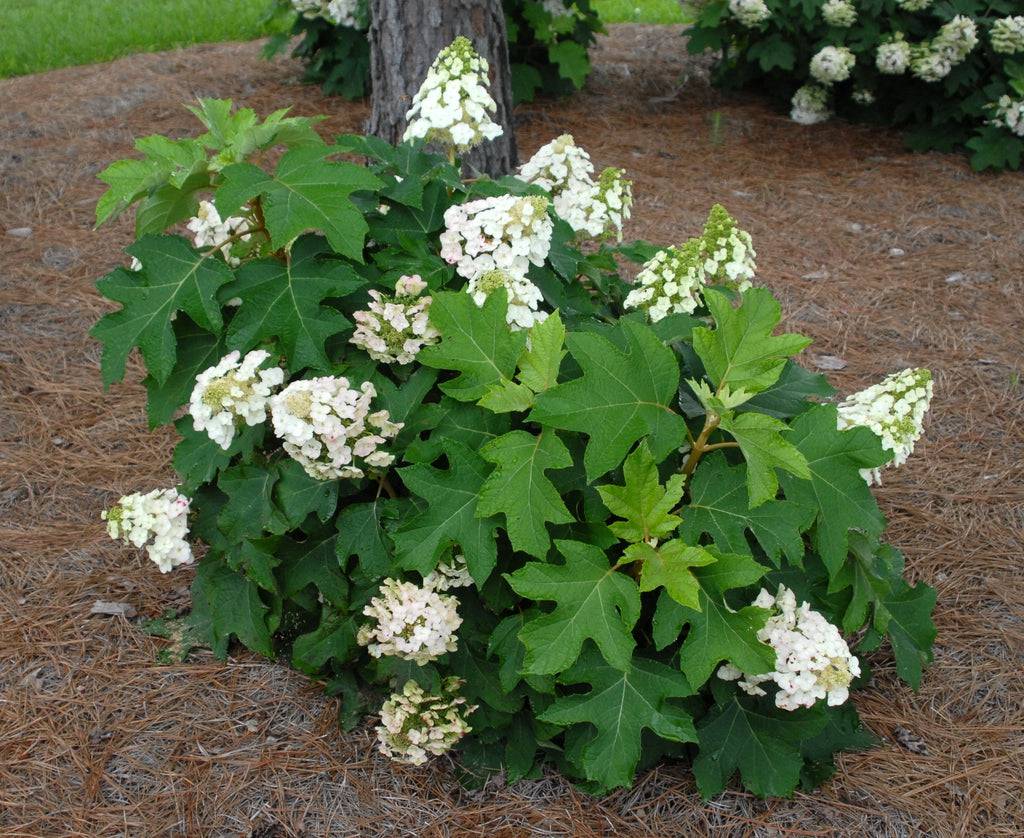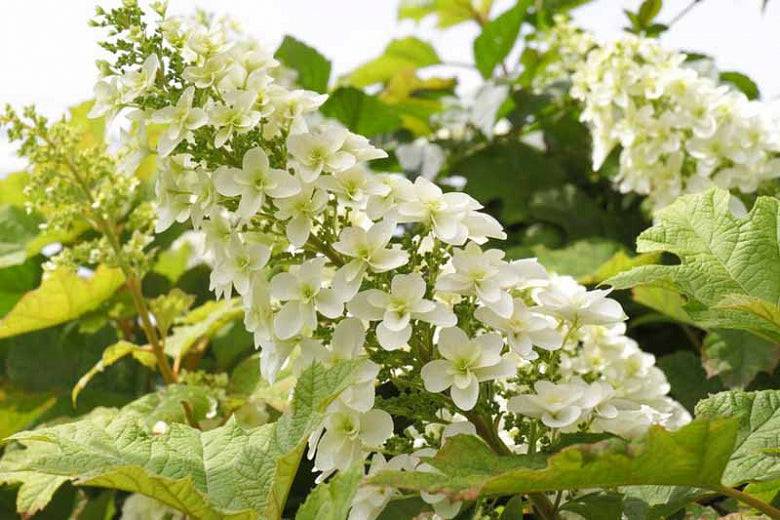Oakleaf Hydrangea
- Shipping Available
- In stock, ready to ship
- Backordered, shipping soon
The Oakleaf Hydrangea (Hydrangea quercifolia) is a lovely deciduous shrub that hails from the southeastern United States, particularly from Georgia and Florida to Louisiana. It's known for its charming upright, broad-rounded shape and the beautiful pyramidal panicles of white flowers that bloom in the summer. One unique feature is its branches, which exfoliate, and its large, dark green leaves that are 3-7 lobed, closely resembling the well-loved oak tree leaves.
The name "Hydrangea" has an interesting origin, coming from the Greek words "hydro," meaning "water," and "aggeion," meaning "vessel." This refers to the cup-like capsular fruit that the plant produces, as well as alluding to the plan’s water-loving nature - though remember it does appreciate good drainage! Moreover, the specific name "quercifolia" reflects the leaves' delightful similarity to those of the oak tree.
These beautiful oakleaf hydrangeas thrive in nutrient-rich, medium-moisture, well-drained soils and can adapt well from full sun to shade. They particularly enjoy moist environments and appreciate some summer mulch to help keep their roots happy. Since oakleaf hydrangeas bloom on old wood, pruning after flowering might be necessary, though they usually need just a little grooming.
Height: 6’-8'
Spread 6’-8'
Bloom: May-July
Light: Full Sun-Part Shade
Water: Medium
Zone: 5-9
Origin: Southeastern U.S.
Spring Shipping:
Orders are shipped within 7-10 business days. We will email you if there are expected delays.
When you order plants from our nursery, you can expect them to arrive in the best possible condition. Our team carefully packs each order using sturdy, biodegradable packaging materials.
Your plants' appearance may vary depending on the season and their current growth stage. We may cut back the leafy growth of some plants to prepare them for shipment and transplanting.
5 Gallon and Up: Any plant purchased to ship over 5 Gallons will be shipped bare root. This means we will remove the plant from its original pot, remove the soil surrounding the roots, and wrap the roots with a biodegradable plastic bag. This reduces weight and the likelihood of damage during shipping.
Once your plants arrive, it is essential to plant them as soon as possible. This will help them rebound and thrive. If you cannot plant immediately, water regularly and keep the roots off heat-conducting surfaces.
Newly transplanted plants often require more water until their roots are well established. Plan to water them 1-3 times weekly for the first few months.










